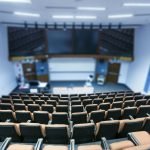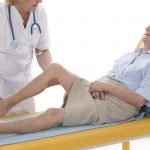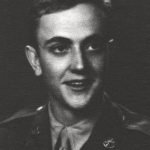North Dakota’s “Can Do” Spirit The Stuff of Naturopathic Legends
Beth Allen, ND
North Dakota’s tourism motto is “North Dakota, Legendary.” It so happens that some of the legendary figures in modern American naturopathic history have roots in North Dakota.
Bastyr University’s namesake – Dr John Bastyr – grew up in Fargo, attending parochial school. His father, a pharmacist, moved the family to Seattle when Bastyr turned 16. National College of Natural Medicine (NCNM) co-founder, Dr Frank Spaulding, was born and raised on the family farm in York. Present day co-founder and clinical operations director of Naturopaths Without Borders – Dr Sarah Preston Hesler – originally hails from Dickinson.
As the only state in the nation thus far to pass a licensing law in 1 legislative session, the North Dakota Association of Naturopathic Doctors (NDAND) can temporarily claim legendary status. Since its founding in November 2010, the NDAND has had ambitious dreams. The North Dakota licensing law was signed, sealed, and delivered less than 6 months later, passing with the unanimous approval of the state Senate and 89% approval of the House of Representatives. Visions of Indian Health Service placements, naturopathic residencies, a regional conference consortium, and even someday a naturopathic medical college, populate its 5-year strategic plan. The plan focuses on 4 pillars: recruitment, legislation, education, and fundraising.
NDAND’s Mission & Goals
North Dakota turned 125 years old last year, while the NDAND turned 4. Today’s membership includes 9 licensed naturopathic doctors and 6 students – triple its original numbers. Though young and small, the NDAND’s success is due in part to 80% of its members having grown up in North Dakota; all but 1 of the licensed naturopathic physicians within the state are native North Dakotans. Even when they are living and practicing out of state, native North Dakota NDs often keep abreast of state association activities.
Recruitment is the association’s #1 goal. Today, 7 licensed naturopathic doctors are located in 5 cities, compared to two NDs practicing in Bismarck at its founding. Members frequently speak in a variety of health career classrooms at the high school-, undergraduate-, and graduate-school levels within the state. This fall, NDAND began promoting naturopathic colleges at graduate school fairs. Members also speak at naturopathic colleges, mentor interested students, offer preceptor opportunities, and answer student questions over cappuccino.
Expanding scope also is a high priority in the NDAND’s 5-year plan. A scope-expansion bill is currently working its way through the North Dakota Legislative Assembly. The bill will transform North Dakota law from a naturopathic scope into an integrative scope, including naturopathic childbirth. Neighboring Montana includes naturopathic childbirth in its scope, and both Minnesota and Montana have a midwifery licensing law. North Dakota currently has neither.
The mission of the organization is 3-fold:
- Build an inclusive spectrum of health care
- First do no harm
- Inspire and cultivate the health of the local and global economy
Member Contributions to Growth
The association sows the seeds of inclusiveness through recruitment, education, and legislative goals. For Bismarck doctors, Faye Johnson and Elizabeth Allmendinger, public speaking in healthcare profession classrooms, and in groups of women, moms, and patients, has paid several dividends. Their combination naturopathic medicine/acupuncture practice at Dakota Natural Health Center is an approved rotation site for University of Mary’s Family Nurse Practitioner program. At the request of pharmacy students, Allmendinger is developing an integrative medicine course for North Dakota State University. Johnson has practiced in Bismarck for over a decade. Describing the changes over time, Johnson says, “It’s pretty amazing. A few professionals back then checked my credentials carefully before referring. Now my referrals come from MD’s, dentists, nurse practitioners, physical therapists, and psychologists.”
Dr Lezlie Link and her radiation oncologist partner at Integrative Medical Solutions are forging collaborative relationships with allopathic specialists. Although the core of their Bismarck practice is integrative oncology, they also see patients with a variety of chronic illnesses from across the region, many seeking naturopathic IV therapy. Link also keeps busy chairing the Board of Integrative Health Care (BIHC), the state regulatory body for naturopathic doctors. When not seeing patients or fielding licensing inquiries, Link works on a framework for a naturopathic residency program. “We are starting a student clerkship this year as a trial run for a 2-year residency program,” she states. Link completed a residency at Southwest College of Naturopathic Medicine. She sees residencies and practical business experience as unmet needs in the profession. Link adds, “It’s important to have real-life exposure on how to operate and own a successful office and clinic.”
Dr Beth Allen of Fargo has concentrated on building relationships with human service professionals, acupuncturists, and Native Americans. A former social worker and public policy consultant, Allen offers education and training through the Allen Centre for Natural Health. She prepared the new North Dakota Association of Acupuncture and Oriental Medicine (NDAAOM) for the 2015 legislative session. North Dakota is 1 of 6 states without acupuncture licensure, something the NDAAOM is seeking to change. Recently Allen began working with state Native American leaders to pave the way for NDAND student members to participate in Indian Health Services (IHS). The association seeks to initiate a tribally-operated integrative medicine clinic as an IHS pilot project.
NDAND members are also active in their local communities and in the naturopathic community. The association has joined forces with other American Association of Naturopathic Physician (AANP) affiliates to form a Midwest coalition, which will sponsor an annual regional conference. Allmendinger represents North Dakota within the coalition and the AANP, and she also serves on the board of a new food co-op. In addition to BIHC, Link also serves on the boards of a nonprofit foster-care organization and a local tennis association. Johnson’s ongoing volunteer work in a variety of family-friendly community projects led to her recognition in the Bismarck Tribune’s “Top 40 under 40” in 2013. Allen provides licensing guidance to unlicensed states. One of NDAND’s newest members, Dr Stephanie Nishek, does outreach for the Minot Young Professionals, a Chamber of Commerce organization.
Big Ideas, Big Dreams
Big ideas come easily to the group. Allen’s big dream is a naturopathic medical school within the state, possibly linked to a public or tribal college. There are 11 public, 5 tribal, and 2 private-nonprofit colleges in North Dakota, including a public medical school. She also dreams of seed money to fund special projects, such as clinical research, outreach clinics, or residencies. Link dreams in both concrete and abstract terms. In addition to creating 2 residency positions by 2017, Link also wants to make naturopathic medicine a household name. Johnson takes that dream 1 step further, wanting people to understand the amazing role a naturopathic doctor can play within a healthcare team.
Nishek and soon-to-graduate Vanessa McLaughlin each dream of growing a naturopathic office into a multi-disciplinary holistic center, working together with other like-minded practitioners to offer a wide range of services. Allmendinger’s dream weaves together several things she loves: natural medicine, rural areas, and world travel. Allmendinger originates from Hazen, a rural community in coal country. She dreams of establishing satellite clinics in rural North Dakota, developing countries, and recent conflict areas. Dr Brooke Bodeen, from Devils Lake, shares similar interests in the developing world. Currently completing a residency in Washington, Bodeen has served in clinics in Nicaragua and Nepal.
McLaughlin, a student member from Carrington, graduates from National University of Health Sciences (NUHS) in April 2015 with definite plans to return to North Dakota. Being in unexplored territory for naturopathic practices appeals to McLaughlin, along with family and Midwestern friendliness. “I love explaining naturopathic medicine to people who are unfamiliar with it,” she says. McLaughlin arrived at NUHS planning to become a chiropractor. She always had felt drawn toward alternative medicine, particularly supplements, diet, and botanicals. But she had never heard of naturopathic medicine. As a first-year chiropractic student, she started asking her naturopathic friends about their program. “Everything just made sense, seemed more… well-rounded,” explains McLaughlin about what made her switch programs. McLaughlin is still mulling over where to set up practice. She plans to contemplate that decision while spending time with family and studying for board exams in Rugby – the geographical center of North America.
Community Support & Fundraising
Thus far, the NDAND tackles all projects with donated time and dollars from association members, foregoing a formal annual membership fee. Fundraising has taken a back seat to the pressing daily concerns of busy practitioners. To start focusing on specific needs, arrangements are underway for a targeted campaign directed at naturopathic-friendly individuals and businesses. Hiring an executive director is part of the 5-year strategic plan.
For now, the association relies on the passion of its members. Allen believes having roots in the state keeps the passion alive. “My family reminds me that what I do makes a difference,” she states. Allmendinger stays inspired by a quality she sees as uniquely North Dakotan: “Because of the natural, genuine, sense of community North Dakotans live by, they are willing to support in ways I haven’t seen elsewhere. You can educate people about an issue, or a passion, and have the whole community get behind you,” Allmendinger explains.
Nishek moved home to Minot in 2014 after 4 years of practice in Arizona. On July 1, she opened the Aurora Naturopathic Center. Asked what drew her home, Nishek replied, “For one thing, you can’t beat the economy here,” noting that she saw 35 new patients in her first month of part-time practice. North Dakota is the fastest growing state in the nation, with an economy based on agriculture, energy, technology, and tourism. Minot sits on the edge of the Bakken oil field and has a growing population of newcomers. Minot also has a longstanding history of holistically-minded healthcare practitioners, several of whom moved or died in recent years. “There is possibility here, filling a niche left wide open,” elaborates Nishek. “And it’s hugely beneficial to be close to family. We can spend more time together.”
Current Challenges
Challenges come with practicing in a fairly new licensed state. Members miss the community that exists in states with more naturopathic doctors. The lack of full scope requires adaptability, creativity, and flexibility, not just in terms of treatment-planning for some types of patients, but also in terms of creating a financially-secure practice. Being in a newly-licensed state also involves a significant, uncharted learning curve – setting up a practice from scratch, finding collaborative relationships, and navigating the healthcare system, such as setting up an in-house lab or getting plugged into a hospital system to order imaging. Additionally, the oil boom has generated a lack of office space and an inflated cost of living, impeding naturopathic doctors that want to practice in western North Dakota.
Student member Tonya Mulvaney, a Grand Forks/Fargo native, is pursuing graduate degrees in naturopathic medicine, integrative medicine research, and nutrition at NCNM. Family and the entrepreneur-friendly environment of Fargo have Mulvaney strongly considering returning home after graduation in 2016. When asked what she sees as the biggest challenge if she returns, Mulvaney answers, “… lack of acceptance, awareness, and knowledge of my education. It’s a big task to educate people on what we learn, are qualified to do, and why they should see a naturopath. It’s a paradigm shift. I really work on my elevator speech.”
North Dakota’s “Can Do” Spirit Lives On
Twenty miles east of Rugby is York, where Spaulding grew up. His parents were wed in the nearby town of Cando, a town professed to be named for the pioneers’ “can do” spirit. Spaulding’s early life was shaped by the Spanish Flu pandemic that took the life of his older siblings’ mother, the Dust Bowl days of the Great Depression, and World War II service in the Battle of the Bulge. In 1956, Spaulding and a handful of other doctors kept naturopathic medicine alive by establishing NCNM, just as the last remaining naturopathic colleges were closing. Among the original NCNM doctors was fellow North Dakotan Bastyr, who became an NCNM president, lifelong instructor, and beloved clinician. Like these legendary predecessors, the NDAND is brimming with pioneer “can do” spirit and attracting other similarly-minded souls.







